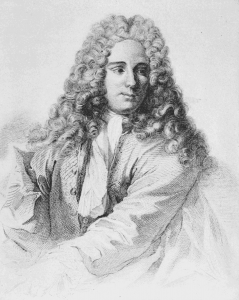The ESD and the Berlin Académie
Peter Anstey writes …
One good indicator of the wide dissemination of experimental philosophy in the early modern period is the extent to which it manifested itself in the institutions of the time.
The first chair in experimental philosophy was the Plumian Chair in Experimental Philosophy and Astronomy that was established at the University of Cambridge in 1707. The first incumbent of the Chair was Roger Cotes who went on to edit the second edition of Newton’s Principia. We have also mentioned Abbé Nollet before on this blog and the fact that he was appointed Professor Royale de physique expérimentale at the Collège de Navarre in Paris in 1753.
It is of great interest, therefore, to note that the important restructuring of the Académie Royale des Sciences at Belles Lettres in Berlin in the 1740s also reflected the central place that was now accorded to experimental philosophy in Europe.
King Frederick II of Prussia sought to reinvigorate the institution by appointing the prominent French savant Pierre-Louis Moreau de Maupertuis as President of the Académie in 1746 and restructuring it into four classes. In the ‘Rules of the Academy’ from 1746, which are the official position of the Académie, the nature of these four classes is spelt out as follows:
The Academy will continue as it is, divided into four classes
- The class of Experimental Philosophy, including chemistry, anatomy, botany and all sciences that are founded on experiment.
- The class of Mathematics, including geometry, algebra, mechanics, astronomy and all the sciences which have as their object the abstract and numbers
- The class of Speculative Philosophy which will apply to logic, metaphysics and morals
- The class of literature will include antiquities, history and languages.
(Histoire de l’Académie Royale des Sciences et Belles Lettres, 1748, pp. 3–4)
There are a number of striking features of these classes. First, note that Experimental Philosophy is here grouped with Speculative Philosophy. It is clear that a form of experimental-speculative distinction is part and parcel of the Academicians’ conception of natural philosophy.
Second note that anatomy and botany are included in Experimental Philosophy. This is striking because it is closer to the manner in which experimental philosophy in Britain in the seventeenth century was understood in so far as it encompasses disciplines that were often regarded as part of natural history. In the mid-eighteenth century in France, by contrast, Nollet regarded physique expérimentale and natural history as distinct disciplines.
We note also that astronomy and mechanics, two sciences in which Maupertuis excelled, are grouped under Mathematics. This is in spite of the fact that they required observation and experiment. Indeed, Maupertuis’s fame rested in large part on his Lapland expedition of 1736 on which he was able to establish experimentally that the Earth is an oblate spheroid. Yet this had implications for both mechanics and astronomy.
Furthermore, it is worth highlighting that morals is considered to be a speculative science. This provides an interesting contrast to the situation in mid-eighteenth-century Scotland where there was a concerted attempt, as David Hume put it ‘to introduce the experimental method of reasoning into moral subjects’.
We can obtain a clearer sense of just what each class encompassed by examining the Histoire de l’Académie two years later. Here is how experimental philosophy is described:
Experimental Philosophy includes all natural history, all knowledge for which one has need of eyes, of hands, and of all the senses. It considers the bodies of the universe covered with all their sensible properties. It compares these properties linking them together and deducing one from another. This science is all founded on experiment. Without it reason is always in danger of falsehoods and losing itself in systems that it denies. However, experiment also has need of reason; it saves the natural philosopher time and pains; it makes him grasp all at once certain relations that deliver him of several useless operations; and it permits him to turn all his focus towards those phenomena that are decisive. (Histoire de l’Académie, 1750, p. 118)
By contrast speculative philosophy is that which ‘considers those objects that don’t have any properties of bodies. The supreme being, the human mind, and all that which belongs to the mind is the object of this science. The nature of bodies themselves, as represented by our perceptions, even if they are things other than these perceptions, they are in its remit’ (Histoire de l’Académie, 1750, p. 120).
Interestingly, speculative philosophy here is not a method that begins with hypotheses and principles and constructs natural philosophical systems. Rather it includes subject matter that is beyond the scope of natural philosophy, what we would call metaphysics. Of course, metaphysics had long been associated with speculative philosophy. Newton’s railing against metaphysics is a case in point. However, for Newton the hypothetical or speculative philosophers allowed metaphysics to intrude into their natural philosophical reasoning. Here, by contrast, speculative philosophy is clearly demarcated from the study of material bodies.
Is this indicative of a shift towards regarding speculative philosophy as pertaining to metaphysics rather than to natural philosophy in mid-eighteenth-century Europe? I would be keen to know of parallel definitions of speculative philosophy.


